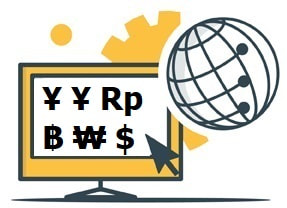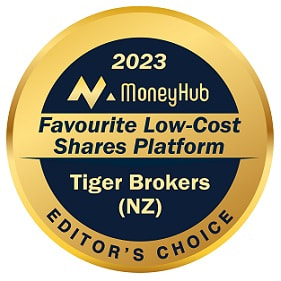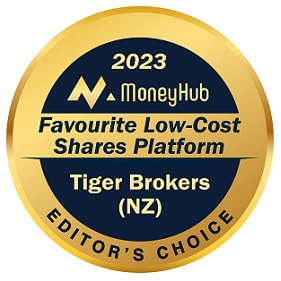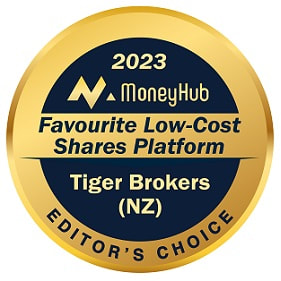How to Invest in the Asian Markets from New Zealand
Platforms like Tiger Brokers (NZ), Interactive Brokers and Smartshares make investing in Asian markets effortlessly accessible - our guide explains everything you need to do before you invest, the risks and what to be aware of.
Updated 14 July 2024
With companies like Alibaba, Nio Inc, Tencent and Toyota becoming some of the world's most valuable, the opportunities from investing in Asian markets are endless. Comparing what’s available on the NZX (Auckland Airport, a2 Milk and Spark, among others), it’s perfectly reasonable to want to invest in high profile Asian-based heavyweights. Thanks to several investment platforms, New Zealanders have the opportunity to do just that. Best of all, the platforms compete vigorously with each other, helping drive down the trading fees to record lows.
Investing in Asia - Must-Know Facts:
In this guide, we outline and explain:
With companies like Alibaba, Nio Inc, Tencent and Toyota becoming some of the world's most valuable, the opportunities from investing in Asian markets are endless. Comparing what’s available on the NZX (Auckland Airport, a2 Milk and Spark, among others), it’s perfectly reasonable to want to invest in high profile Asian-based heavyweights. Thanks to several investment platforms, New Zealanders have the opportunity to do just that. Best of all, the platforms compete vigorously with each other, helping drive down the trading fees to record lows.
Investing in Asia - Must-Know Facts:
- Singapore, Japan and Hong Kong are highly regulated, but other markets (e.g. Thailand and China) can be riskier.
- Many Asian companies list on US exchanges, which means you can invest and hold in USD.
- New Zealand-based ETFs/funds (such as Smartshares and Superlife) offer diversified Asian market-specific investments for anyone who wants a passive approach. There's also less need to undertake in-depth due diligence of individual shares to invest in. That being said, it has never been cheaper to invest in Asia either directly or via funds or ETFs.
- China is emerging and on course to become the world's biggest economy. With this comes a lot of opportunities (alongside significant risks). As an emerging market, China's business language is not Mandarin and Cantonese, not English. For this reason, many high-growth Chinese companies choose to list on the US markets where capital raising is relatively more accessible, and there is a larger investor pool.
In this guide, we outline and explain:
Asian Markets in a Nutshell
- Outside of Australia and New Zealand markets, which are often classed as "Asian" or "Australasian" investments, there are four key markets commonly invested in by New Zealanders - Singapore, Hong Kong, Japan and China.
- Japan, Hong Kong and Singapore are (arguably) the most developed and investor-friendly in the Asia region.
- Japan is the largest market by capitalisation (led by giants such as Toyota, SONY and SoftBank). Hong Kong-listed companies include multinationals such as MGM China, while Singapore many industrials, Singtel (a phone network) and Singapore Airlines. China is an emerging market;
Hong Kong
The Hong Kong Stock Exchange is one of the world's largest and lists many international and Chinese companies, including AIA, Tencent Holdings, Industrial and Commercial Bank of China, China Construction Bank and Bank of China. Other companies include MGM China (owner of cinemas), Swire Pacific (owner of Cathay Pacific) and CK Hutchison Holdings (a port operator). You can get an idea of the market performance by looking at the HK 35 index.
Investing in Hong Kong can be done directly (i.e. into HKD-denominated shares) or via ETFs listed in New Zealand, Australia and the US. For example, the Hong Kong iShares ETF tracks the Hang Seng. You can see its recent performance here.
Singapore
The Singapore Exchange includes some of the city-state's biggest companies - DBS, UOB and OCBC (banks), Singapore Airlines, Singtel (phone network) and SATS (airport operator), alongside giant industrials. Singapore's equity index is represented by the Straits Times Index, STI, which tracks the performance of the top 30 companies listed on the Singapore Exchange.
Investing in Singaporean companies can be done directly (i.e. into SGD-denominated shares) or via ETFs listed in New Zealand, Australia and the US. For example, the Singapore ETF tracks the STI. You can see its recent performance here. Some Singaporean companies also list on the US markets, with examples including Flex Inc (a semiconductor manufacturer) and Sea Limited (a tech company).
Japan
The Tokyo Stock Exchange is the third-largest market globally in terms of market cap and has over 2,000 companies listed. The Japanese market is heavy with industrials (Kawasaki, Toyota, Honda etc), pharma, oil, engineering and technology. Investing in Japan can be done directly, via an ETF (such as Smartshares' Japan Equities ESG ETF (JPN) or a non-NZD ETF) or a managed fund.
China
The Shanghai Stock Exchange (SSE) and the Shenzhen Stock Exchange are China's two sharemarkets. Both have restrictions on access to foreign investors set by the Chinese government. The SSE is by far the largest, with over 1,900 companies list and a US$4 trillion market cap. Major companies include the Industrial and Commercial Bank of China, the Agricultural Bank of China and the Bank of China. A popular way to invest in China is via an ETF, with the Deutsche Xtrackers Harvest CSI 300 China A-Shares Exchange ETF (ASHR) which invests in China Class A shares listed on Shenzhen and Shanghai exchanges.
Know This: Asian Markets Specialist Tiger Brokers (NZ) is our Favourite Low-Cost Shares Platform in our 2023 Editor's Choice Awards:
*Flat fees will be waived, and pass-through fees and T&Cs apply. MoneyHub’s Editor Christopher Walsh says: "Tiger Brokers is focused on global investing, and at a time when some other platforms have raised their fees, Tiger Brokers is around half the cost of its nearest competitor for US stock trades. Tiger Brokers is the only global online player to have a local Auckland-based team and to be regulated in New Zealand. It focuses on delivering low fees to global market investors looking to build wealth using shares, futures and options. It continues to innovate and has recently launched auto-invest, fractional shares and its own TigerGPT investment chatbot." |
Investing in Asia - All the Options Compared
There are many ways you can invest in Asian shares, including ETFs, managed funds, direct share investments and via KiwiSaver. We outline the most common options below:
1. New Zealand-based ETFs investing in Asia
Arguably, the least complicated and most diversified way to invest in Asia is via an NZD-denominated ETF or a managed fund. Smartshares (an ETF provider) is one example and currently offers three investment options with an Asian focus:
2. New Zealand-based KiwiSaver and Managed Funds investing Asia
While Smartshares are popular, only Superlife offers Asian-specific investment options. Superlife offers both KiwiSaver and managed fund investments, and is a fund-version of Smartshares' ETFs. The Asia-focused funds include:
3. New Zealand-based Share/ETF Investment Platforms investing in Asian Markets
While there has been a rise in Sharesies-type investing for the NZX and US markets, only Tiger Brokers (NZ) offers direct equity access to Hong Kong, Singapore, Australia, China and US markets.
4. New Zealand-based Share/ETF Investment Platforms investing in Asian Markets via US ETFs and shares
Stake, Tiger Brokers, Sharesies and Hatch offer the opportunity to buy and sell US-listed shares. None of the platforms charge monthly fees, so you're free to join just more than one while keeping your ongoing costs down. Our guide to Hatch vs Sharesies vs Stake reveals each platform’s competitive edge, while Tiger Brokers (NZ) is reviewed separately.
Other options offering US investments:
1. New Zealand-based ETFs investing in Asia
Arguably, the least complicated and most diversified way to invest in Asia is via an NZD-denominated ETF or a managed fund. Smartshares (an ETF provider) is one example and currently offers three investment options with an Asian focus:
- Japan Equities ESG ETF (JPN), which has a "diversified exposure" to Japanese companies.
- Emerging Markets ETF (EMF), which FTSE Emerging Markets All Cap China A Inclusion Index, a portfolio of thousands of China and emerging market-based companies. You can see examples of investments and the weightings here.
- Asia Pacific ETF (APA), which invests in financial products included in the FTSE Developed Asia Pacific All Cap Index, which invests in large, mid and small-cap companies in Australia, Hong Kong, Japan, Korea, New Zealand and Singapore.
2. New Zealand-based KiwiSaver and Managed Funds investing Asia
While Smartshares are popular, only Superlife offers Asian-specific investment options. Superlife offers both KiwiSaver and managed fund investments, and is a fund-version of Smartshares' ETFs. The Asia-focused funds include:
- Emerging Markets Fund invests in companies globally, although it's heavily weighted to China, Taiwan and India, with minor holdings in Thailand and Malaysia.
- Superlife's Asia Pacific Fund invests in companies based in Japan, Australia, Korea, Hong Kong, Singapore and New Zealand.
3. New Zealand-based Share/ETF Investment Platforms investing in Asian Markets
While there has been a rise in Sharesies-type investing for the NZX and US markets, only Tiger Brokers (NZ) offers direct equity access to Hong Kong, Singapore, Australia, China and US markets.
4. New Zealand-based Share/ETF Investment Platforms investing in Asian Markets via US ETFs and shares
Stake, Tiger Brokers, Sharesies and Hatch offer the opportunity to buy and sell US-listed shares. None of the platforms charge monthly fees, so you're free to join just more than one while keeping your ongoing costs down. Our guide to Hatch vs Sharesies vs Stake reveals each platform’s competitive edge, while Tiger Brokers (NZ) is reviewed separately.
Other options offering US investments:
- InvestNow – offers 30+ US-based funds, both index and actively managed, some of which may have Asian-focused investment. Our InvestNow review outlines more.
- ASB Securities and Jarden Direct offer US trading via their platforms; our ASB Securities review and Jarden Direct review outlines more.
5 Must-Know Facts about Investing in the Asian Markets
Before making your first investment, it's important to know how the platforms compare and what to consider before going further. The ultimate of each platform is to minimise investor costs and maximise returns, so being aware of the key differences will help you find a platform that's right for you.
Brokerage fees vary between platform – some are freeBrokerage fees are charged whenever you buy and sell shares. You’ll pay anything from $0 to US$30+ per trade, which adds up if you make a few trades and are paying above-average to do so. Stake proudly offers 0% brokerage fees, which is the cheapest brokerage option available to New Zealanders right now. Tiger Brokers (NZ) charges per-trade fees for investing in US and Asian markets, as does Interactive Brokers. ASB Securities, by comparison, charge the most. In general, the lower the brokerage fee, the more profitable your investments will be.
|
If you invest in non-NZD Asian investments, you may pay to convert NZD to USD, SGD, HKD etc. For this reason, it's important to know the margin before you investMost platforms use the foreign exchange spot rate (the market rate that banks use) and charge a fee on top as a way to make money. This is paid upfront (when you convert NZD) and also when you sell the investment and elect to convert the money back into NZD. This can be avoided if you invest in a New Zealand-based ETF or managed fund that invests in Asian companies (something which is offered by Smartshares). Investment platform FX fees for non-NZD investments are as followed:
|
Most platforms are free to use with no monthly feesMost are free or offer a ‘freemium’ model, which means you’ll only pay when you trade. For direct Asian investments, Tiger Brokers offers the widest number of markets (US, Hong Kong, Singapore, Australia and China) without any ongoing monthly fee. Sharesies offers US, Australia and New Zealand markets without an ongoing fee either. Stake and Hatch offer US markets, although investors have the option to upgrade to a paid Stake account for the ability to trade on unsettled funds (suitable day trading) and stop-loss (which means you won’t lose money if the US share markets drop overnight while you sleep in New Zealand).
Whatever you decide, the fees are low, and you won't incur ongoing membership or platform fees if you sit and hold your investments. |
User experience and depth of data is key – make sure you ‘road test’ the platforms to find out what works for youThe more data a platform offers, generally, the more informed you’ll be about a company's price history. Listed Asian companies in Singapore, Hong Kong and the US make announcements in English, so it's easier to follow them. You can use Google Finance or Fool.com to see the latest data, news and analyst reports. For in-platform reporting, Tiger Brokers (NZ), Hatch, Sharesies and Stake are examples of platforms that deliver live share price updates, graphs and the ability to search by sector etc. Another consideration is whether you prefer to use an app or a website, or both. Some platforms are website-only, so this can limit your options if you want the convenience of on-the-go access.
|
Know upfront how customer support is handledIs support phone-based, e-mail only or chat-bot? And is support available during the Asian market hours (around 1pm to 10pm in New Zealand), or during New Zealand work hours? While the customers of most platforms don’t tend to require ‘urgent’ support given most investing is done with a long-term objective, it’s still a consideration to make. If you're quite particular on the support level you need, this will influence the platform significantly.
|
Know This: Asian Markets Specialist Tiger Brokers (NZ) is our Favourite Low-Cost Shares Platform in our 2023 Editor's Choice Awards:
*Flat fees will be waived, and pass-through fees and T&Cs apply. MoneyHub’s Editor Christopher Walsh says: "Tiger Brokers is focused on global investing, and at a time when some other platforms have raised their fees, Tiger Brokers is around half the cost of its nearest competitor for US stock trades. Tiger Brokers is the only global online player to have a local Auckland-based team and to be regulated in New Zealand. It focuses on delivering low fees to global market investors looking to build wealth using shares, futures and options. It continues to innovate and has recently launched auto-invest, fractional shares and its own TigerGPT investment chatbot." |
Benefits, Risks and the Bottom Line – What to Watch Out For When Investing in Asian Companies from New Zealand
Benefits:
Risks:
Overall, we say:
- Enormous potential for investments – the NZX offers around 200 companies and ETFs (and arguably, many small companies listed don’t do much). Investing in Asian companies, funds and sectors opens up thousands of companies and ETFs. Arguably, no Asian country's economy and prospects are the same. For example, Singapore is more developed than neighbouring Malaysia and Indonesia, which have different sectors than Hong Kong and China. For this reason, there is a tremendous amount of diversity, opportunity and risk in Asia.
- Low fees – before 2018, investing in Asia (or Asia vs US markets) was arguably expensive and inaccessible with the exception of some value-driven ETFs like Smartshares. The arrival of Tiger Brokers (NZ) has changed that when it comes to investing in Hong Kong, Singapore and China. Sharesies, Stake and Hatch have innovated low-fee US investments.
Risks:
- Exchange rates fluctuate – if the NZD becomes stronger against, for example, the HKD, your investments will be worth less in NZD, all other things being equal, in NZD. This means that if you invest NZ$10,000 and the NZD:HKG moves from 5.00 to 5.50, your money is worth around NZ$1,000 less if you converted back into NZD at the NZD/HKD 5.50 rate.
- Unlike the NZX50 which is open from 10am to 4:30pm, the Asian markets open later in the day (around 1pm New Zealand time for Singapore/Hong Kong/China/Japan) and stay open until about 10pm. If you're looking to actively invest, you'll need to factor that in when deciding to buy and sell shares.
- It’s harder to observe local Asian market conditions and company announcements in New Zealand – while there is endless data and stock pick websites pumping out sharemarket noise, New Zealand is somewhat disconnected from Asia when it comes to investment news. For example, a2 milk was first seen in New Zealand supermarkets and had local press promoting its health benefits. Its shares slowly, then rapidly, moved from 25 cents to $18 (before crashing). If you are an investor who likes to see what you’re investing in, picking Asian companies can be harder to interpret.
Overall, we say:
- There's a lot of potential upside from investing in Asian markets, but never invest any more than you can afford to lose.
- No Asian country is like another, which means there's a lot of opportunities (and risks); thorough research is strongly suggested.
- Asian companies continue to come to float on local and US markets, with Nio Inc, Alibaba, Tencent Holdings Ltd and Tiger Brokers being recent examples. However, Tencent and Luckin Coffee being recent examples. However, as with any investment, not everything is always what it seems. After its NYSE debut, Luckin Coffee was fined for defrauding investors and is now facing bankruptcy.
- The China Hustle is a 2017 finance documentary that reveals systematic and formulaic decades-long securities fraud by Chinese companies listed on the US stock market and is worth watching to see how capital markets are manipulated when specific countries lack investor regulation. This is not the issue for the likes of Singapore, Australia, Hong Kong and many others, but investor fraud is something to be aware of.
- Newly launched platforms are safe and have made it affordable and easy to buy and sell Asian investments.
- Whatever market conditions are, there's arguably always more buying opportunities in Asia than what you'll find on the NZX.
Investing in Asia – Frequently Asked Questions
Investing in the Asian markets needs some thought when it comes to foreign exchange rates, tax, investment management and more. Our section below explains what you need to know. If we're missing something you'd like answered, please contact our research team.
What happens to my investment when the exchange rate changes? (e.g. movements in NZD:HKD, NZD:SGD, NZD:CNY and NZD:USD etc)
No investment platform (such as Tiger Brokers (NZ), Stake, Hatch or Sharesies) offers hedging options for share and ETF purchases. This means that there’s no arrangement to mitigate any move in the exchange rate. For example, if the NZD goes up against the USD or AUD, and all other things being equal, the NZD value of an investment will be less due to the USD and AUD being worth less. But you won’t see that in real terms unless you sell the investment and convert the USD or AUD back into NZD.
If you wish to invest in hedged Asian investments, Smartshares and InvestNow offer some ETF and managed funds options. Keep in mind that there is always a hedging fee added to the annual management fee, usually around 0.30% to 0.50% p.a.
If you wish to invest in hedged Asian investments, Smartshares and InvestNow offer some ETF and managed funds options. Keep in mind that there is always a hedging fee added to the annual management fee, usually around 0.30% to 0.50% p.a.
What do I need to do about tax and the IRD in general when it comes to investing in Asia?
Tax can be complicated - our guide to tax on investments outlines what you need to know. Specifically:
- There is no tax on the gains from investing in New Zealand and most Australian shares. However, tax on foreign shares (e.g. Asia, US or UK based etc.) valued at over NZ$50,000 is calculated under the FIF rules, which includes consideration of any capital gains.
- There are two methods of calculating tax under the FIF rules being either FDR or CV; the method that produces the lowest tax is chosen. This can be complicated, so we suggest reading an expert guide to help you understand your obligations if you own shares investing in Asia.
- However. if you invest in overseas shares through a New Zealand-based managed fund, ETF or Kiwisaver provider, the fund manager will calculate and pay any FIF taxes through the fund.
- Many people invest in Asia via US markets. When you have US-based investments, there are two tax obligations – US Federal and New Zealand taxes. The Stake, Sharesies and Hatch platforms take care of all US tax obligations at source (a small fee applies). This means your returns are net of US tax (around 15% for most investors’ dividends and distributions), and you don’t need to do any paperwork as it’s done on your behalf by your platform’s partners.
Is my money safe, and who owns the shares I invest in?
This will depend on what you buy and what platform you use. Please ask this question before making any investment. These best approach is to get the answer in writing.
Can I invest in Asian-based shares and ETFs from New Zealand?
Yes – Tiger Brokers (NZ), Stake, Sharesies and Hatch all offer a number of ETFs on their platforms, and selected New Zealand fund managers offer investments that include Asian-based companies. A good place to start is looking at the ETF options available on Smartshares, Tiger Brokers (NZ), Stake, Sharesies and Hatch; there are currently hundreds of individual Asian companies and ETFs available.
I want to invest in Asian markets using a platform, but are there alternatives to investing in shares directly?
Yes – many people find selecting individual shares complicated. For this reason, ETFs offer the opportunity to invest in a number of Asian companies listed in China, Japan, Singapore, Taiwan, Hong Kong and other tiger economies. ETFs offer diversification that's less time-consuming compared to making individual shareholdings. ETFs can be purchased to track individual sharemarkets or sector investing. For example:
There are hundreds of US-traded Asian investing ETFs. They are popular options for achieving exposure to specific economies (e.g. Taiwan, Singapore etc.). Examples include:
- Singapore - The SPDR Straits Times Index ETF, traded on the SGX, invests in Singapore's largest companies.
- Hong Kong - The Hang Seng Index ETF, traded on the Hang Seng, invests in Hong Kong's largest companies.
There are hundreds of US-traded Asian investing ETFs. They are popular options for achieving exposure to specific economies (e.g. Taiwan, Singapore etc.). Examples include:
- EWT - iShares MSCI Taiwan ETF (this ETF invests in Taiwan's largest companies)
- EWY - iShares MSCI South Korea ETF (this ETF invests in South Korea's largest companies)
- AIA - iShares Asia 50 ETF (this ETF isn't country-specific. Instead, it offers "broad exposure to the 'Asian Tiger' countries of Hong Kong, South Korea, Singapore, and Taiwan investing in large caps in these four nations".
- EWS - iShares MSCI Singapore ETF (this ETF invests in Singapore's largest companies)
- FLAX - Franklin FTSE Asia ex Japan ETF (this ETF invests in China, South Korea, Hong Kong, India, Indonesia, Malaysia, Pakistan, the Philippines, Singapore, Taiwan, and Thailand companies, and, as the name suggests, excludes Japanese companies)
- FLHK - Franklin FTSE Hong Kong ETF (this ETF invests in Hong Kong's largest companies)
How much of my portfolio should I invest in Asian shares?
MoneyHub isn't a financial adviser, so we can't suggest any appropriate ratio. As with any investment, diversification is the key to managing risk. Keeping your savings in cash, term investments/fixed-interest, a portfolio of shares and a handful of managed funds is a proven way to minimise your exposure to any one investment. Asian markets are no more (or less) volatile than the US, Australia and New Zealand, so investing prudently is the best approach to long-term wealth creation.
Know This: Asian Markets Specialist Tiger Brokers (NZ) is our Favourite Low-Cost Shares Platform in our 2023 Editor's Choice Awards:
*Flat fees will be waived, and pass-through fees and T&Cs apply. MoneyHub’s Editor Christopher Walsh says: "Tiger Brokers is focused on global investing, and at a time when some other platforms have raised their fees, Tiger Brokers is around half the cost of its nearest competitor for US stock trades. Tiger Brokers is the only global online player to have a local Auckland-based team and to be regulated in New Zealand. It focuses on delivering low fees to global market investors looking to build wealth using shares, futures and options. It continues to innovate and has recently launched auto-invest, fractional shares and its own TigerGPT investment chatbot." |














